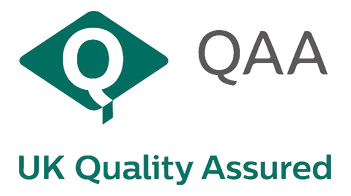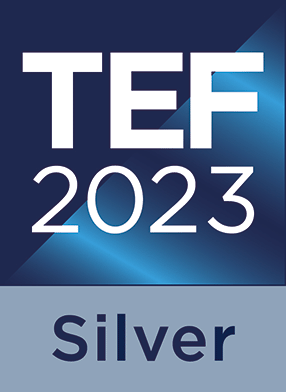Access your Prospectus
Want to find out more about the wide range of courses, student support and more available for students at University Centre Leeds?
Access your University Centre Leeds Prospectus now.

Carve a career path in the multi billion-pound computing and digital sector with our Computer Science Foundation Degree. This course will provide you with the specialist digital skills needed to succeed, allowing you to excel in this exciting, fast-paced and ever-evolving industry.
HTQ - Become a Data Analyst
This foundation degree is a Higher Technical Qualification (HTQ) . This means it will give you the technical skills and training to move into a Data Analyst role.
TYPICAL OFFER
UCAS Tariff Points: 48 UCAS tariff points from two A-levels (or equivalent qualifications)
A Levels: 2xD grades.
BTEC L3 Diploma or Extended Diploma: MP, MPP grade.
Access to HE Diploma: Overall pass with 60 credits, with 24 credits to be at a Merit grade.
T Levels: Acceptable in a relevant subject.
GCSE English: English Language (desirable) grade 4 or above. Key Skills Level 2, Functional Skills Level 2 and the Certificate in Adult Literacy are accepted in place of GCSEs.
GCSE Maths: Maths grade 4 or above. Key Skills Level 2, Functional Skills Level 2 and the Certificate in Adult Numeracy are accepted in place of GCSEs.
IELTS: IELTS 6.0 with no less than 5.5 in any component.
International qualifications: International qualifications will be assessed against these criteria.
Mature applicants: University Centre Leeds welcomes applications from mature applicants who may not have met the academic criteria but can demonstrate a wealth of experience in their chosen field. Candidates in this category and otherwise are likely to be interviewed to assess their suitability for the course and may be asked to provide a portfolio of evidence to support their application.
*21 years and over at the start of the course
RPL claims: The course structure actively supports claims for Recognition of Prior Certified Learning (RPCL) or Recognition of Prior Experiential Learning (RPEL).
About the course
Prepare for a successful career in computer science. Our new foundation degree emphasises the practical skills demanded by employers. You will strengthen your programming skills alongside exploring areas such as artificial intelligence, machine learning, databases, application development, cyber security, networking and more.
You will gain the specialist technical knowledge and skills to develop large and small scale software applications. Additionally, you will learn about the science behind computing and the principles behind emerging technologies. You will also learn how to collect, store, extract and analyse data while exploring artificial intelligence and machine learning.
While sharpening your specialist computer science skills, you will also gain highly sought after transferable skills to complement your technical skills such as managing budgets, communication, problem solving and working as part of a team.
Upon completion of this Foundation Degree, students can choose to progress to a full BSc (Hons) Computer Science Top-up Degree. This program includes an additional year of study for full-time students and two years for part-time students.
This course is validated by Luminate Education Group


For full-time courses, if you have applied or intend to apply to any other higher education institution as well as University Centre Leeds, you'll need to apply through UCAS.
If you know you’ll be applying for a course at University Centre Leeds only, you can apply either using our Direct Application Form, or via UCAS.
Note: If you have already made an application via UCAS, or intend to, you must apply via UCAS and not direct.
Applying to study part-time? You should apply directly to us.
If you intend to apply for a part-time course at University Centre Leeds, you should always apply via our online direct application form.
To access your account again and complete your application, use the second link provided in your verification email.
Please Note: The 'Apply direct' link works for direct applications to this course only. For each course you wish to apply for, you will need to find the course on our website and use the ‘Apply direct’ button on the correct page for that course.
Modules may include
Year 1 (Level 4)
Principles of Programming (20 credits) – You will learn the underpinning knowledge and skills of programming and software development that is essential in a variety of computing related careers from app and website development to server administration.
Web and Apps (20 credits) – You will develop & demonstrate the technical and creative skills required in the design, construction and management of an effective website interface and a mobile application.
Principles of Databases (20 credits) – You will demonstrate the practical aspects of designing and building a relational database and you will acquire skills and knowledge in the practical structure design of a given scenario and then apply this to implementing a prototype.
Networks (20 credits) – You will understand the basic concepts of networks such as network types, architecture, services, protocols, topologies and standards to design, implement and how to secure a network given a business scenario. You will develop practical skills to design, implement, and test and troubleshoot a network.
Principles of Cyber Security (20 credits) – You will be introduced to the cyber security threats landscape and the technologies that can be used to countermeasure those threats, learning how to protect network infrastructure, components and data.
Professional Development (20 credits) – You will acquire and develop a range of skills including transferable, personal, interpersonal, academic and subject specific skills that will enable you to succeed in the industry.
Year 2 (Level 5)
Software Development (20 credits) – You will develop useful and reliable GUI based applications that meet the expectations of end users by applying a range of proven software development methods and techniques.
Introduction to AI (20 credits) – You will explore the many uses of AI and identify some of the problems that AI can potentially solve, such as facial recognition in solving crime to streamlining manufacturing in a smart factory or detecting fraud in banking.
Statistics for Computing (20 credits) – You will learn a range of statistical techniques and how decision-making is enhanced by the application of statistical methods. You will develop your numerical abilities and increase your confidence in handling data in order to create information and knowledge.
Data Analysis and Modelling (20 credits) – You will study the design principles, practical implementation and development skills of database systems, and learn how to make a critical appraisal of business systems analysis and design using structured methodologies.
Employability Skills (20 credits) – You will develop the wider skills today’s employers are expecting from their employees, including so-called “soft skills” such as time management, communication skills, project management and a good work ethic.
Project (20 credits) – You will identify a problem and set about planning and delivering a solution to that problem within a given timeframe. You may choose to develop an online solution or develop a mobile app, or provide a business solution. The scope for the nature of your practical output for this module is vast.
You will be given the opportunity to develop skills across a wide range of computer science disciplines, learning to programme software applications, develop websites and mobile apps. You will learn the vital skills in database design, learning how to collect, store, extract and analyse data, you will also explore the exciting world of Artificial intelligence and machine learning.
You will also develop as an individual, learning to appreciate the computing industry form an employers perspective, honing the skills employers are looking for that will compliment your technical skills. One of the aims of the course is to prepare you for employment and a long career in the digital sector.
Finally, you will develop a range of skills that can be used across the digital technology sector that will provide you with the opportunity to work in a broad range of roles, such as a Computer Programmer, Software Developer, Web and Mobile Developer, Database specialist.
You will be assessed in a variety of ways including: practical tasks, portfolios, essays, case studies and presentations.
TYPICAL OFFER
UCAS Tariff Points: 48 UCAS tariff points from two A-levels (or equivalent qualifications)
A Levels: 2xD grades.
BTEC L3 Diploma or Extended Diploma: MP, MPP grade.
Access to HE Diploma: Overall pass with 60 credits, with 24 credits to be at a Merit grade.
T Levels: Acceptable in a relevant subject.
GCSE English: English Language (desirable) grade 4 or above. Key Skills Level 2, Functional Skills Level 2 and the Certificate in Adult Literacy are accepted in place of GCSEs.
GCSE Maths: Maths grade 4 or above. Key Skills Level 2, Functional Skills Level 2 and the Certificate in Adult Numeracy are accepted in place of GCSEs.
IELTS: IELTS 6.0 with no less than 5.5 in any component.
International qualifications: International qualifications will be assessed against these criteria.
Mature applicants: University Centre Leeds welcomes applications from mature applicants who may not have met the academic criteria but can demonstrate a wealth of experience in their chosen field. Candidates in this category and otherwise are likely to be interviewed to assess their suitability for the course and may be asked to provide a portfolio of evidence to support their application.
*21 years and over at the start of the course
RPL claims: The course structure actively supports claims for Recognition of Prior Certified Learning (RPCL) or Recognition of Prior Experiential Learning (RPEL).
On completion of this foundation degree course you can progress on to our BSc (Hons) Computer Science Top-up Degree. To gain a full BSc (Hons) degree from our foundation degree you would need to study for a further year. You could also choose to study for a BSc (Hons) at other institutions.
You could find employment in a broad range of roles, such as a Computer Scientist, Computer Programmer, Software Developer, Web Developer, Database specialist.
For the latest version of the programme specifications for this course please click here.
For the latest version of the Leeds City College regulations please click here.
Applications are open for 2025 entry.
To apply directly to study at University Centre Leeds as an international applicant, please see the direct apply link further up this page or visit our 'How to apply' page and complete the steps.
You can also apply through UCAS.
For more information please visit our 'How to apply' page.
Course fees for Undergraduates are £14,000 (GBP)
Scholarship available £3,000 (GBP) all courses.
For more information about fees and scholarships, please click here.
Please see our entry requirements page for additional requirements as an international student
International students will study 5 additional hours on top of the regular timetable.
For more information about visa and immigration, please click here.
Hear directly from our students at University Centre Leeds as they share their unique journeys, challenges, and achievements. In this video, they discuss what makes learning here special, from supportive tutors and hands-on learning experiences to the close-knit community that fuels their passion and ambitions.
Discover how University Centre Leeds has helped shape their confidence, skills, and career paths, bringing their goals within reach in a vibrant and supportive environment.
Our online and in-person Open Events give you a chance to hear from tutors, discover the range of student support available, and find out for yourself why University Centre Leeds has the highest rating for student satisfaction in the city (NSS 2024).
Open DaysWant to find out more about the wide range of courses, student support and more available for students at University Centre Leeds?
Access your University Centre Leeds Prospectus now.







